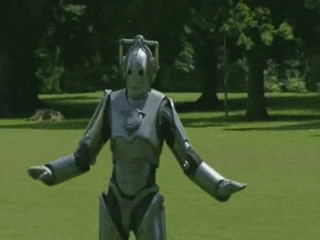Why ask why?
Human beings are “primates who tell stories.”
In the film Ex Machina, a programmer named Caleb Smith must carry out a version of the Turing Test. He has to decide whether a humanoid robot named Ava exhibits enough intelligent behavior to feel like a real human being.
Ava is curious. In one scene, she asks Caleb a series of questions, intent on getting to know him. When he recalls a tender memory of his mother, who passed away when he was a child, Ava seems satisfied.
Caleb is astounded by her demeanor. Ava passes the test, largely thanks to her curiosity. Eventually, he forgets she’s a humanoid and begins to see her as, simply, human. It’s only the beginning of her story, but the point is, like any human, she asks questions and seeks explanations for things.
It’s been said that human beings are primates who tell stories. Not only do we enjoy stories, we also rely on them to understand the world. In some cases, stories can be as persuasive as data. A good story can even influence the outcome of a trial. When politicians want you on their side, they lure you with – you guessed it – a touching story.
Psychologist Tania Lombrozo believes stories are satisfying because they offer explanations. “Often the world presents us with ambiguity,” Lombrozo said. “We try to connect the dots in a way that tells a compelling narrative and allows us to have a sense that there is order.” In a way, science is also a form of storytelling. Scientists use research to unravel why things are the way they are.
Ex Machina is a sci-fi thriller, but the story isn’t entirely fiction. Today, artificial intelligence researchers seek to make AI seem more and more authentic. As part of that quest, they are interested in “narrative intelligence,” which computer scientist Mark Riedl defines as our ability to “craft, tell, understand, and respond affectively to stories." Scientists like Riedl wonder: Can narrative intelligence make AI more human? If we’re primates who tell stories, perhaps stories are a key way to understand how we function.
ON THE PODCAST
March 15: Why is my friend late? How does nuclear fission work? What happens when I sneeze? Human beings ask an endless number of questions. This week on Hidden Brain, we begin a three-part series on why we tell stories. Psychologist Tania Lombrozo discusses our drive to make sense of the world, and how the stories we tell ourselves can lead to discovery, delight, and disaster.
March 22: Stories don’t just help us understand the world. They also help us understand ourselves. In the second part of our series on storytelling, we look at how interpreting the stories of our lives – and rewriting them – can change us forever.
WE ASKED…
“Is there a belief you once strongly disagreed with but, after learning more about it, it actually won you over?”
MORE EPISODES LIKE THIS
WHAT SHANKAR IS READING
Is the Coronavirus alive?
Cuttlefish Pass the Marshmallow Test
Effect on kids’ learning as parents interrupt child time by responding to text messages: Abstract
MOMENT OF JOY
This dog might not pass the Turing Test, but she sure is adorable:
Have an idea for Hidden Brain? A story you want to share with us? Send an email to ideas@hiddenbrain.org. If you’d like to support our work, you can do so here. And thanks!






